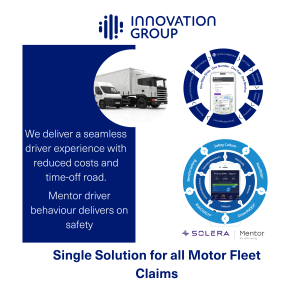ACT Supreme Court Acting Justice Linda Ashford has found Coles Supermarkets negligent of providing adequate training on staff use of safety steps.
Acting Justice Ashford awarded a former employee over $1million in damages after she rolled her ankle stepping down from a step, hurting her right hip, ankle, knee and shoulder falling on the floor.
Ashford told the court, “Calling a step a safety step does not make it so,” after hearing Coles Supermarkets failed to act on the recommendations or a risk assessment conducted after hundreds of incidents involving safety steps.
The court heard that these square safety steps used in-store Australia-wide were 370mm high with lower triangle-shaped steps on all four sides. But Coles had defended the damages claim, arguing the employee had been instructed through induction training weeks before the incident to step backwards off the step, not sideways as happened in her injury. Coles also defended saying the “obvious piece of equipment” didn’t need specific training on its use, citing the 2016 Cowie v Gungahlin Vetinary Services case when the Supreme Court found the vet clinic hadn’t breached its duty of care in failing to formally train a worker on safe stepladder use.
However, Acting Justice Ashford responded to Coles’ attitude toward safety as “trite” in describing safety steps as obvious and ordinary  considering the numerous cases for their misuse. Data analysis showed 385 incidents involving Coles stores and safety steps between 2004 and 2009, almost half of which (49 per cent) involving a worker stepping down from one.
considering the numerous cases for their misuse. Data analysis showed 385 incidents involving Coles stores and safety steps between 2004 and 2009, almost half of which (49 per cent) involving a worker stepping down from one.
“It does not seem recommendations (for adequate supervision and training, and other measures) were follow through,” Acting Justice Ashford said. She also found the supermarket giant’s written safe work practices and inductee training video was inconsistent in instructing safety step use, accepting the worker’s claim she didn’t see the relevant piece of video.
Acting Justice Ashford said the relevant piece of video last for “several seconds” and excluded a demonstration of how to step safely off the equipment.
“I watched the video twice, missing the part entirely on the first viewing, as it was so brief and unremarkable,” she said, adding that new Coles employees were provided with a large quantity of material upon induction. “Some was relevant to the job to be performed and some was probably peripheral and irrelevant,” she said, “Neither the [worker] nor [a fellow inductee giving evidence] had much recollection of what happened at the induction.”
While the worker had signed a number of induction forms suggesting she had received training – which included the use of safety steps – she had “little comprehension of what many of the tasks involved,” Acting Justice Ashford added.
“I do not accept there to have been the requisite training in the use of the step and there appears to have been no supervision or monitoring of the [worker] in the performance of her work whilst using the step,” she concluded, awarding the six-figure sum for medical expenses, economic loss, past and future care and general damages.
–

Image: Flickr
The AFMA Fleet Management Guide refers to the necessity for employee induction training, as well as vehicle training in the procurement of new assets, particularly in the adoption of in-car mobile phone connectivity such as Bluetooth. The vehicular workplace, or mobile workplace as it’s also referred, is inherently dangerous by nature. As the workload on employees mount and the environment in which they operate that vehicle comes to a head, the risk of crashes and the resulting injuries or death increase several fold.
It’s the fleet manager’s responsibility, likewise the organisation’s OH&S officer and employee management and HR department’s increasing duty to protect workers from dangers they are often unaware of in their workplace.
AFMA encourages fleet managers and other company managers to take the National Road Safety Partnership Program’s Safe Use of Mobiles in Vehicles survey to self-assess how safe your drivers really are.




















